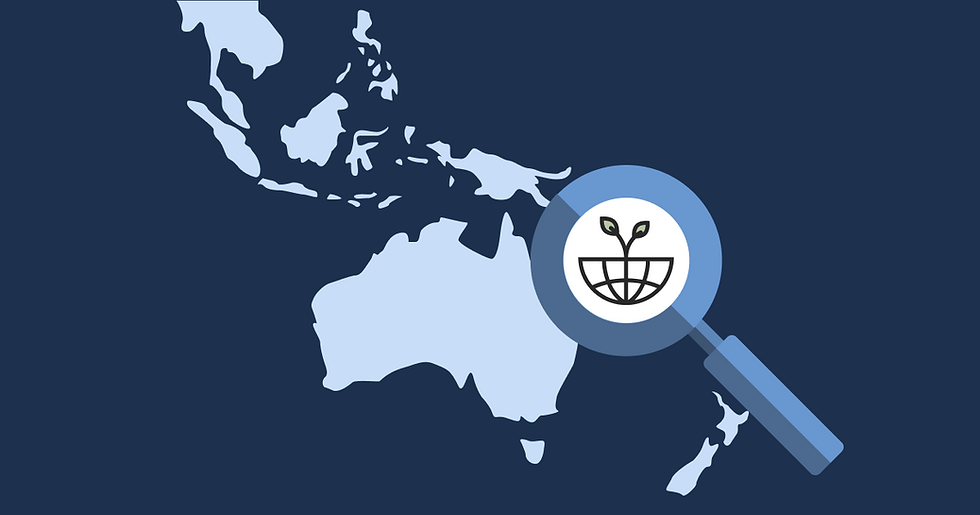Asia & Australasia Space Leaderboard Reveals Bifurcated Ecosystem, & Strong Sustainability Leaders Emerge
- Callala Support Team

- Sep 15, 2025
- 3 min read

PRESS RELEASE: FOR IMMEDIATE RELEASE
15 September 2025
LONDON, UK - SustainabilityOf.Space today released the Asia & Australasia Space Leaderboard, the first comprehensive regional assessment of sustainability performance across over 500 space organisations with significant presence spanning from Pakistan to New Zealand.
Published ahead of IAC 2025 in Sydney, Australia (29th September - 3rd October 2025), this ground-breaking analysis reveals a fundamentally bifurcated ecosystem where early sustainability leaders are positioning themselves for competitive advantage in rapidly evolving markets.
Drawing from a comprehensive database of 1,650+ international space organisations, the report demonstrates how transparency serves as the binding mechanism that transforms scattered sustainability excellence into systematic competitive advantage across diverse regulatory landscapes.
Key Findings at a Glance
Progress Made:
23% of assessed organisations now provide sustainability reporting through ESG, CSR, or dedicated sustainability disclosures
Top-performing organisations maintain gender-diverse leadership teams with 21-60% women in leadership positions
78% of public companies provide sustainability disclosures, demonstrating strong engagement with transparency requirements
Nearly half of the Top 50 organisations are hardware and component manufacturers and launch providers or integrated companies with complex supply chains, indicating those facing the most challenging assessments are leading disclosure efforts
Critical Gaps Identified:
Public-private disclosure gap widens to 72 percentage points (78% vs 6%), representing a 10-point increase from the UK baseline (July 2025)
Terrestrial considerations dominate disclosures, with limited space-specific environmental and social risk reporting
81% of regional organisations operate with fewer than 200 staff, falling below typical mandatory reporting thresholds
Absence of established space reporting frameworks remains key barrier to comprehensive space sustainability disclosure
Regional Ecosystem Dynamics
The assessment reveals a fundamentally bifurcated ecosystem where two-thirds of organisations maintain dominant regional operations, predominantly as small enterprises, while one-third comprises subsidiaries of larger international entities. This structure creates distinct sustainability reporting pathways and strategic opportunities.
"The evaluation of the global space sector that operates in-region clearly shows how voluntary disclosure makes a stark differentiation," said Andrew Iwanoczko, Managing Director of SustainabilityOf.Space.
"Those organisations who undertake comprehensive sustainability reporting are making a genuine strategic commitment rather than meeting more basic regulatory compliance. They are well-positioned to draw benefit of necessity and expand it through a comprehensive lens, ultimately capturing new market opportunities and strategic advantage."
Methodology and Standards
The Space Leaderboard Methodology draws on leading global standards and evaluates organisations across weighted metrics including disclosure quality, governance structures, and environmental considerations. The assessment recognises that countries within the region operate across diverse regulatory landscapes, from mandatory sustainability reporting in Australia to emerging requirements elsewhere.
Looking Forward
The report identifies compelling strategic opportunities for organisations willing to embrace transparency proactively. With over four-fifths of the top sustainability performers operating with gender-diverse leadership teams, and smaller regional companies able to differentiate through voluntary disclosure, early adopters can shape emerging standards rather than react to them.
Future editions will continue to track progress as space-specific reporting frameworks develop and sustainability requirements expand across the sector, with regional companies positioned to transform environmental and social responsibility from compliance burden into strategic differentiation.
About SustainabilityOf.Space
SustainabilityOf.Space is dedicated to advancing sustainability transparency and accountability in the global space sector through research, benchmarking, and standards development.
The Space Leaderboard is an initiative that creates market conditions where voluntary sustainability leadership generates systematic financial returns.
Media Contact:

*Graphic Design: Victoria Beall
.png)


Comments